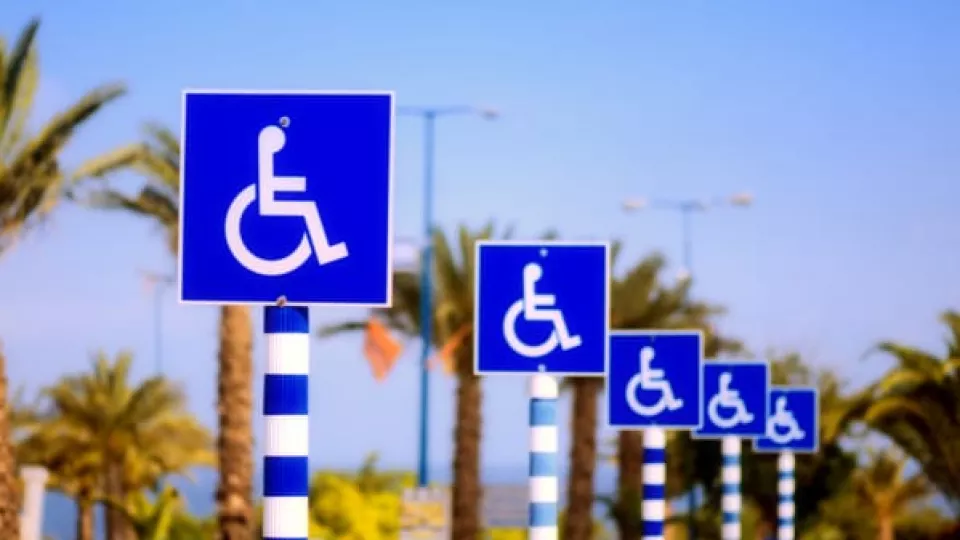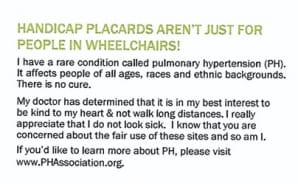
'But you don't LOOK sick!'
When searching for a space in a crowded parking lot, we have all momentarily longed to park in those empty handicap parking spots. We have also heard of parking violation fines for parking without a permit or having no handicap placard visible, so most of us avoid this infraction.
There are people out there in everyday life who will challenge the actions of strangers. Sometimes this behavior may be justified and even helpful for safety reasons. However, when the criticism is misplaced upon a person with an activity-impaired disease process whose family has just parked very appropriately in a handicap space, public education and awareness training are definitely in order. Not every handicap can be discerned just by looking at someone. One example of this: pulmonary hypertension.
Pulmonary hypertension (PH) is a rare progressive disease with a high morbidity and mortality rate. Elevated pulmonary arterial pressures cause strain on the heart’s right ventricle (RV). Untreated, RV failure and death occur. With treatment, patients can relieve symptoms and slow the disease progression, but are monitored closely and must typically follow medical advice for carefully restricted and monitored physical activities.
Jacqueline Szmuszkovicz, MD, a pediatric cardiologist, transplant and pulmonary hypertension specialist at Children’s Hospital Los Angeles, manages pediatric PH patients with multiple therapies. She notes that careful monitoring to detect medication side effects or disease progression is essential in order to stay on top of symptoms and support the cardiovascular system to maintain the best quality of life possible. Often times, she recommends that her patients use handicap placards so they don’t have to walk long distances.

The Pulmonary Hypertension Association (PHA) was founded as a support group in 1989 by PH patients, and has grown to include medical, nursing, pharmaceutical and other professionals. The PHA produces several publications, online teaching aids and frequent professional conferences to provide current information to all who are affected by PH.
PHA has recently provided a handout card via their website, PHAssociation.org, with a simple explanation of the disease. The card may be printed and can be displayed or distributed, for those times when the handicap placard just isn’t enough.
The lesson here: Think before you speak. Though your heart might be in the right place because you are trying to defend the people who can truly benefit from using a handicapped spot, you don’t have all the facts and might be jumping to conclusions that just aren’t true.


